At What Age Do You Start Feeding Babies Solid Food?
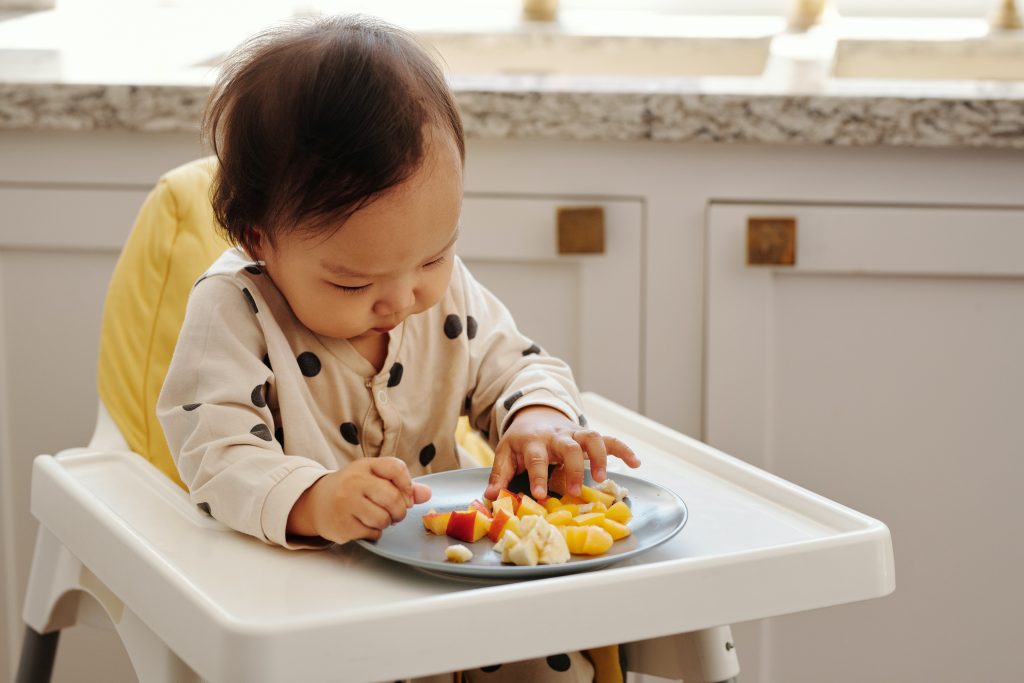
The American Academy of Pediatrics recommends exclusive breastfeeding for the first six months after birth. Age between 4 months to 6 months, most babies are ready to eat solid foods along with breast-feeding or formula-feeding. babies are ready for pureed foods at 4 months, but others are not ready until 6 months. Do not push your baby to eat until he or she is ready or desires to eat.
How Do Introduce Rice Cereal To Your Baby?
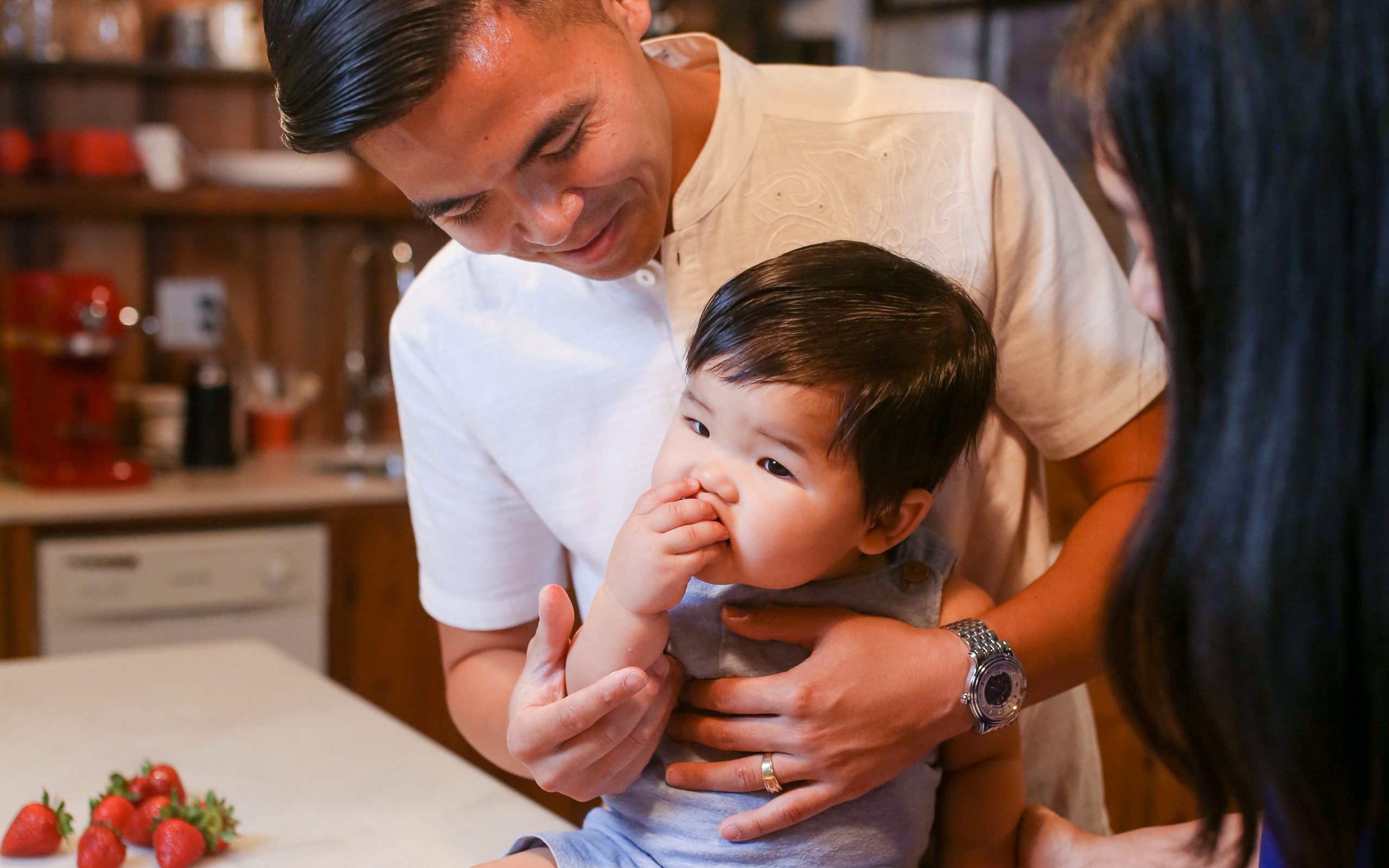
Most babies show signs of readiness and interest in food between four to six months. Babies hold their heads and neck. Babies can co-ordinate their eyes, hands, and mouth, so they can look at food, pick it up, and put it in their mouth.
If your baby can’t able sit up on their own yet, then you are waiting for it until they can hold their head up to start eating solids. Being able to sit up with support. No more gag reflex. This reflex causes a baby’s tongue to automatically push food out of their mouth, and it’s meant to stop choking.
The baby showed interest in trying the food. “When your baby is staring at you while you are eating and trying to grab your food, it’s a good sign it’s time to start solids,” Dr. DiMaggio says.
At What Age Do You Start Feeding Babies First Food And How To Prepare Them?
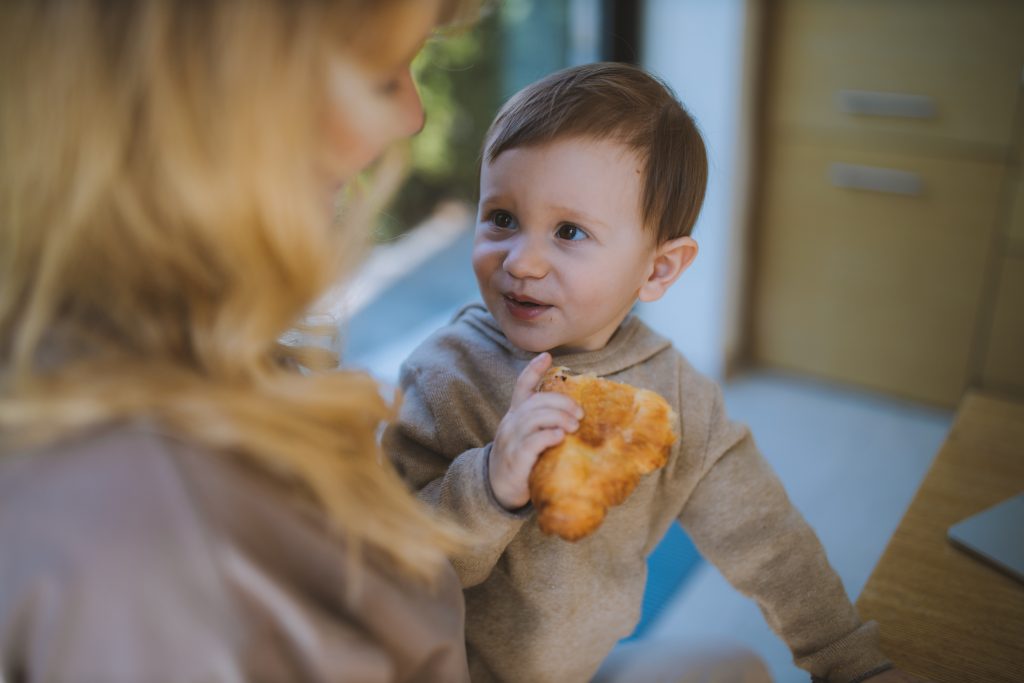
Between ages, 4 to 6 months according to WHObabies should be exclusively breastfed for the first 6 months to achieve optimal growth and development best food to introduce them is rice cerelac or semolina also, you should start with a single food ingredient like fruit or vegetable puree. Prepare it and add breast milk or formula. Make it in pureed form with a smooth consistency. It depends on your baby which consistency he or she will accept.
“If it’s already soft, like a banana, or boil potatoes for example, just mash it up with a fork .it’s not naturally soft, cook and then puree it.
Following foods you can give to your baby without a doubt .you should remember one thing if you start something just follow the same food for 3 to 5 days to check if your baby has any food allergies.
- Applesauce.
- Avocados.
- banana
- Butternut squash.
- Carrots.
- Grains like barley, rice, and oats.
- Meats such as turkey and chicken (but again: don’t forget to puree them well).
- Peaches.
- Peas.
- Pears.
- Pumpkin.
- Sweet potatoes.
Foods To Avoid Before Age 1:
- Avoid small, solid foods that may cause choking, such as:
- Chips.
- Hot dog pieces.
- Nuts.
- Popcorn.
- Pretzels.
- Raisins.
- Raw fruits.
- Raw vegetables.
- Seeds.
- Sticky foods, such as marshmallows.
- Salt and sugar
How Much Introduce Baby Cereal For 4 to 6 Months Old?

Start with single-ingredient food at a time for 3 to 5 days so that you should know about the baby has any food allergies. Homemade food is beneficial for babies. Start with 1 to 2 teaspoons of puree before a feed at lunchtime for the first two weeks, then as your baby progresses start to introduce 1 to 2 teaspoons at breakfast time and increase your lunchtime offer to 3 or 4 teaspoons.
As your baby grows, increase the quantity and variety so that by 9 or 10 months your baby is having 3 meals a day.
Stage 1: Start with single-ingredient food
Stage 2: Make combination food or purees for example apple+ blueberries puree, pear, apple and banana puree, oats, rice + lentils, etc.
Stage 3: Introduce your baby to small bites of food.
The most common food allergy symptoms include:
- Diarrhea.
- Rash.
- Vomiting.
- Wheezing.
- Foods that may cause allergies in babies to include:
- Dairy products are made with cow’s milk.
- Eggs.
- Fish.
- Peanuts.
- Shellfish.
- Soy.
- Sesame.
- Tree nuts.
- Wheat.
The CDC says that babies under 12 months old don’t allow to drink cow’s milk, but you can introduce them to other dairy products, including yogurt butter made from cow’s milk, earlier than that.
The recommended feed for baby goal is one small jar (4 ounces or a cup) of strained baby food per meal. If your baby wants to milk you should offer solids that’s how it makes it a habit to eat solid foods. During babies sleeping or nap time, you should offer them milk.
When Can Babies Start Eating Textured Food And Table Food?
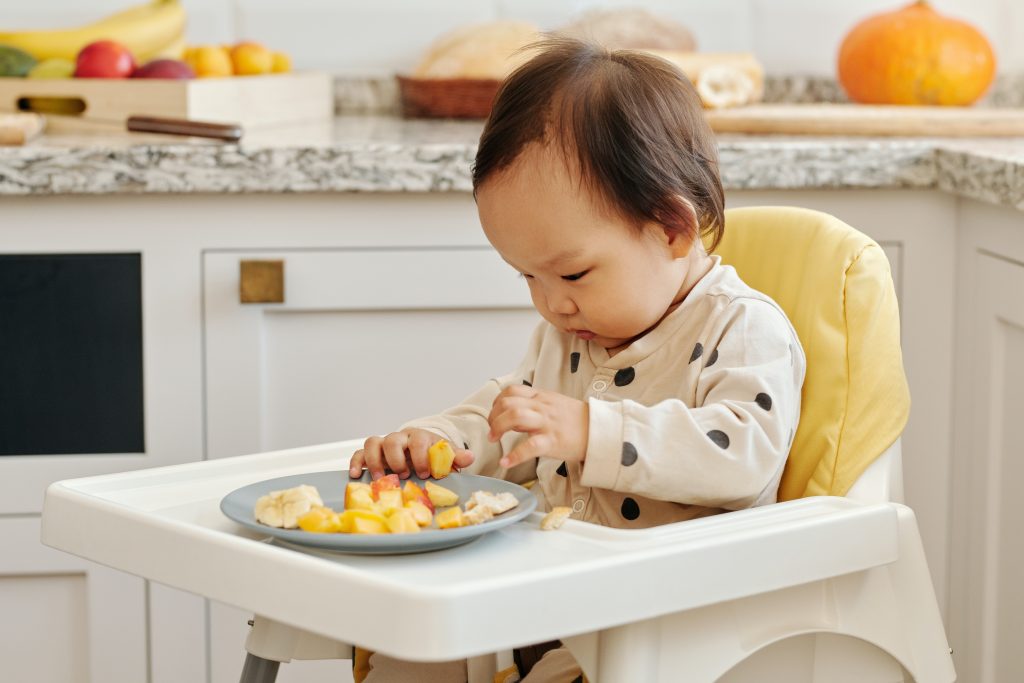
Around 9 to 10 months babies are ready for textured food when they happily finished their pureed food. You should start textured food.
Progress to easy-to-swallow, soft foods that babies can pick up with their fingers and put in their mouths, such as small pieces of bananas, pasta, or finely chopped eggs or chicken. Once your baby masters softer, textured food, you can progress to Finger foods.Textured, less soft foods, such as mashed potato.
Offer small amounts of table food when they get more teeth around 9 to 10 months.“Avoid chunky meat, such as hot dogs and steak, and whole nuts or whole grapes,” she says. “But anything softer with small bite-sized pieces should be fine. Just use a fork to mash it up a little bit.”
When To Introduce Nuts Powder To Babies?
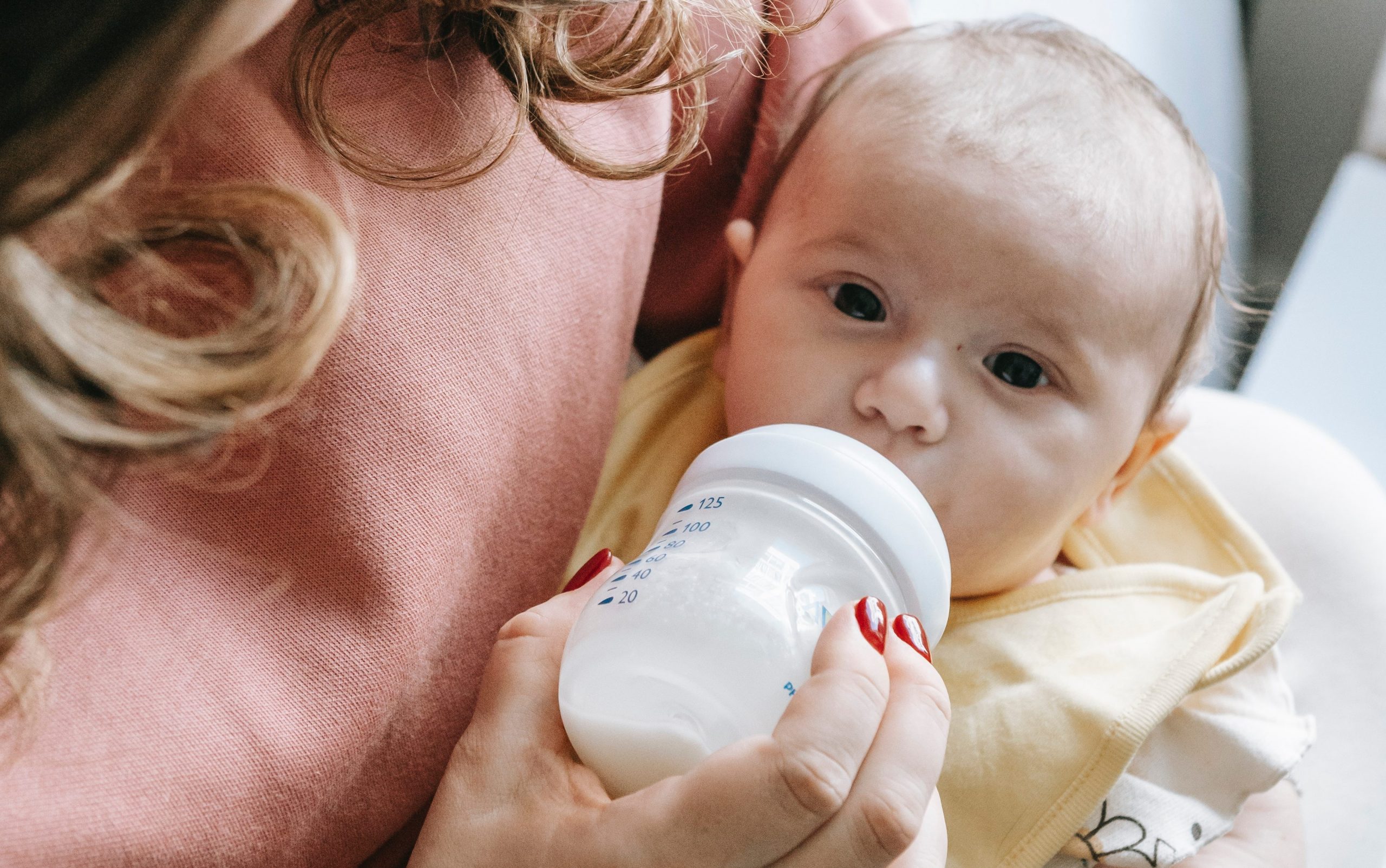
The homemade nuts powder can be given to babies 8 months plus age which is beneficial for babies, boost immunity, brain development, weight gain, prevents constipation, and improves digestion health.
Some foods aren’t appropriate for babies. Consider these guidelines:
Don’t offer cow’s milk or honey before age 1. Cow’s milk is not recommended before age 1 because doesn’t meet an infant’s nutritional needs — it isn’t a good source of iron — and can increase the risk of iron deficiency. Honey might contain spores that can cause a fatal illness known as infant botulism, a type of bacteria that causes muscle weakness, weak cry, etc.
Don’t offer foods that can cause your baby to choke. As your baby progresses in eating solid foods, don’t offer hot dogs, chunks of meat or cheese, grapes, raw vegetables, or fruit chunks, unless they’re able to be cut up into small pieces. Also, don’t offer hard foods, such as seeds, nuts, popcorn, and hard candy that can’t be changed to make them safe options. Other high-risk foods include peanut butter and marshmallows. To introduce nuts and prevent choking, spread peanut butter in a thin layer of pureed peanut butter or peanuts with fruits or vegetables.
Don’t offer heavy meals at night: Babies have a sensitive digestive system try to keep light meals at night.
Things To Remember:
During feedings, sing poems and talk to your babies so that they can enjoy the meal
Sitting position: When your baby can sit easily without support, use a highchair with a broad, stable base. Buckle the safety straps.
Encourage exploration. Allow Your baby to play with his or her food. Make sure that finger foods are soft, easily swallow, and broken down into small pieces to prevent choking.
Introduce utensils. Offer your baby to hold a spoon while you feed him or her with another spoon. As your baby’s dexterity improves, encourage your baby to eat on his or her own.
Offer a cup. Feeding your baby breast milk or formula from a cup at mealtimes can help pave the way for weaning from a bottle. Around age 9 months, your baby might be able to drink from a cup on his or her own.
Dish individual servings. If you feed your baby directly from a jar or container, saliva on the spoon can quickly spoil leftovers. Instead, place servings in a dish. Opened jars of baby food can be safely refrigerated for two to three days.
Avoid power struggles. If your baby turns away from a new food, don’t push. Simply try again another time. Repeated exposure can create variety in your baby’s diet.
Don’t force your baby if he or she resists: When your baby has had enough to eat, he or she might cry or turn away. Don’t force extra bites. As long as your baby’s growth is on target, he or she is likely getting enough to eat. Also, don’t try to get your baby to eat as much as possible at bedtime to get him or her to sleep through the night. There’s no evidence that this works.
Maintain hygiene: First, you should wash your hands and then make baby food. Make sure all baby’s utensils are clean.









